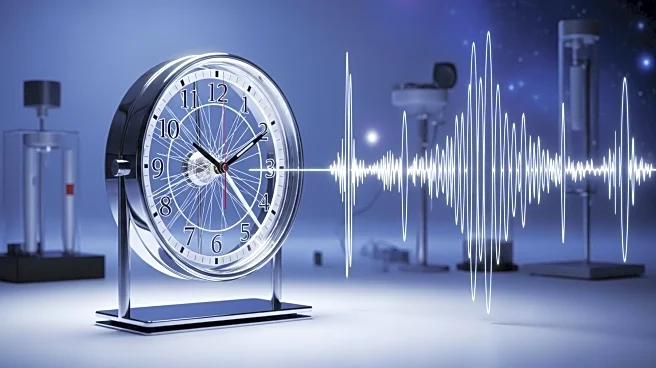What is the story about?
What's Happening?
A new study suggests that daylight savings time affects the detection of gravitational waves by observatories like LIGO. The research, led by Reed Essick, highlights how changes in human activity due to time shifts can introduce noise into the data collected by gravitational wave detectors. While daylight savings time does not affect the actual signals from astronomical events, it influences the operational workflows and physical activities at observatories, potentially biasing the data. The study calls for a reevaluation of how these factors are accounted for in gravitational wave astronomy.
Why It's Important?
The findings underscore the need for precision in scientific measurements, especially in fields like gravitational wave astronomy where data integrity is crucial. Understanding and mitigating the impact of human activities on data collection can lead to more accurate results and enhance the reliability of scientific discoveries. This research could prompt changes in how observatories operate and influence future studies in astrophysics, potentially leading to more robust methodologies for detecting cosmic phenomena.
What's Next?
The study suggests that space-based observatories, which eliminate human presence, could provide more accurate data. Additionally, multi-messenger astronomy, which uses different techniques to cross-check phenomena, could help verify results. The research encourages scientists to maintain skepticism and consider hidden biases in their observations, potentially leading to new approaches in data analysis and collection.
















